Will e-racing generate a new kind of cycling superstar?
Movistar recently held a talent ID programme that consisted of a series of Zwift races designed to recruit 10 riders

Zwift (Photo by Tim de Waele/Getty Images)

"Would-be super-rich cycling megastars wanted – apply within."
Oh, you haven’t heard? Cycling e-sports is here to save bike racing and it’s in need of heroes. Big thighs a requirement.
OK, so calling cycling e-sports – also known as virtual cycling, e-racing and often, in a Hoover-equals-vacuum type way, Zwifting – the saviour of cycling could be something of a stretch. But anyone who thought Zwift and its fellow virtual cycling platforms were simply a way of passing the time while on lockdown is in for a surprise.
It is also a new and exciting blank canvas which carries a fraction of the cost and time commitments of traditional road racing, with endless content opportunities via the social media accounts of young and eager millennials. For teams, sponsors, and riders wanting to emulate their ‘Call of Duty’ e-sports brethren with their seven-figure earnings, what’s not to like?
“I’m pretty sure that in two years’ time, all the WorldTour teams will have their own e-sports division,” says Movistar CMO Juan Pablo Molinero. The Spanish team have just become the first WT outfit to set up their own ‘Eteam’, which will be completely separate from the road team. It even contains two British riders, Steph Clutterbuck and Jimmy Kershaw.
>>> Subscriptions deals for Cycling Weekly magazine
“Our idea was to do this all on virtual – raced on virtual, developed there, grown there... not putting professional road riders into virtual cycling, but creating our own heroes, and our own stories,” he says.
Get The Leadout Newsletter
The latest race content, interviews, features, reviews and expert buying guides, direct to your inbox!
Talent trawling
The team’s talent ID programme was held last month and consisted of a series of Zwift races designed to recruit 10 riders (five men, five women), in a similar way to how the Zwift Academy recruited riders for the NTT and Canyon-SRAM teams. The difference is that the winners of the Movistar Team Challenge will be racing in their sheds, garages and living rooms.
For readers who enjoyed watching the stars of the WorldTour racing in big virtual races last year, such as the Tour de France and World Championships, it might come as a disappointment to learn that this is unlikely to be the way forward. As Molinero says, the virtual cycling of the future will have its own stars. And the next time those big races are promoted in the virtual world, it is those new names that you will see racing, he adds – at least where Movistar is concerned.
‘Something better’
“People might say, ‘But we want to see Alejandro Valverde, or Enric Mas, or your other road riders.’ The answer is, ‘No, listen, we have something better. We have a better team for virtual cycling because they are created for that. They may not be super well-known heroes yet, but I’m pretty sure they will win. Against Nibali and Quintana and Alaphilippe and all the other guys thrown in to participate in virtual, our team will win,” Molinero insists.
Zwift rules the roost at the moment in terms of virtual cycling, both at elite level and for the casual participant. But other platforms such as RGT, BKool and Rouvy among others are keen to take a slice of the pie too. With racing on all of these – some featuring WorldTour pros and some based on WorldTour events – Zwift is not having things entirely its own way.
Virtual reality
But while virtual versions of UCI WorldTour races such as the Tour de France and the World Championships (raced by WorldTour riders) will be many traditional cycling fans’ only experience of following a Zwift race, there is far more to cycling e-sports than the UCI.
Take Canyon E-sports, for example, which is nothing to do with the Canyon Women’s WorldTour team but a standalone concern, set up by Rhys Howell, senior partnerships manager at the bike brand. When it launched in January 2019 it was the first professional team dedicated to cycling e-sports.
Howell reiterates Molinero’s point about future stars coming up from e-racing roots rather than being poached from the road scene. “I definitely see that being the case,” he says. “You know, people coming from complete obscurity to be household names in the same way that’s happened in traditional e-sports.
More freedom
“Look at ‘Call of Duty’. It wasn’t as if the people running ‘Call of Duty’ leagues went to the US Army and said, ‘Give us your best soldiers to play the game,’” he adds. “I think actually being separate from [the UCI and the WorldTour], and having a bit more freedom, will be more beneficial for all of cycling, not just e-sports.”
Canyon E-sports is in good company: Enshored p/b Pedal Power; Saris + The Pro’s Closet; PO Auto-CeramicSpeed… there’s a long list of elite cycling e-sports teams you may well not be familiar with – yet. In fact there are 20 men’s teams and 18 women’s teams racing in the Zwift Racing League (ZRL) Premier Division, which is the bread and butter for these squads. Virtual cycling is almost exclusively the name of the game for these set-ups, although you may recognise the Drops-Le Col and Tibco-Silicon Valley Bank teams from the women’s ZRL roster. Extending out from the ZRL’s Premier Division are eight further lower leagues, all based around the world in different time zones and each catering for all Zwift categories from A to D, and each with separate men’s/mixed and women’s races.
With more than 1,000 teams racing globally, featuring promotions and relegations at the end of each season, it all adds up to a massive pool of talent for the elite teams to choose from. They can’t help but spot the best riders.
Eight weeks of e-racing
The next season starts Tuesday 6 April, with weekly races for eight weeks followed by a ‘Battle Royale Playoff’ to determine which A-category teams will be promoted to the Premier Division.
There will almost certainly be further big cycling e-sports events this year, though details are currently thin on the ground. Expect to see top WorldTour racers in the KISS Super League, another UCI World Championship and, who knows, perhaps another Tour de France.
Howell suggests that virtual bike racing could also offer the perfect way for retired road pros to continue to race: “I could see Tour pros extending their careers by retiring from the road and going into virtual racing in some way, because they don’t have to worry about crashing any more and they’ve only got to race for a small amount of time, and they don’t have to be away from their families,” he says.
Which brings us to one of virtual cycling’s major advantages over ‘real’ cycling – turning elite requires only the time sacrifice of hard training. You don’t need to pack up the car, get a visa and move abroad. There are no tearful goodbyes on the doorstep; no one taking the rise because you brought your special jar of Marmite or your blanky. Oh, and no Brexit 90-day rule.
You just stay put, and keep doing what you’re doing.

And that hard training you do, it won’t be the massive miles that the road pros do, no seven-hour rides in the rain. Just the warmth of the garage and 90 hard minutes in the virtual sunshine.
Of course, for many aspiring riders moving abroad, living with the team and racing on Continental roads is a key part of the sport, but as Molinero says: “Road cycling is nothing to do with virtual cycling.” They are two very different paths.
But surely the biggest trump card that cycling e-sports has to play lies in finance, both in terms of setting up a team and return on sponsorship.
“If I’d gone to our CEO and said, ‘Hey, I want to launch a [road] cycling team, and this is how much money I need to get off the ground,’ he would’ve probably laughed at me,” explains Howell. “But when I put the business plan together for the e-sports team the financial costs were, I don’t know the fraction but you know, roughly about one per cent of the budget required.”
Creating content
Chris Snook, senior PR manager at Zwift elaborates: “A lot of road teams have folded, and the biggest overhead for those teams is costing and logistics, taking a team of riders to a Premier Calendar race with all the transport, mechanics, team staff, hotel at each race costs a fortune. And the prize money isn’t really high either,” he says.
And as Molinero argues, there is not only less investment required from sponsors, but also a greater return going back out their way at the end.
“E-sports and multimedia and social media, It’s not about ‘who’, it’s basically about content,” he says.
And the virtual cycling guys, he adds, “are more familiar with creating content and videos and photos and social media. The return of the investment is going to be higher [for sponsors].” Molinero, Snook and Howell all point out the difficulties cycling has experienced with the demise of teams and sponsorship over recent years.
Real cycling’s tifosi, says Molinero, are becoming older as young sports fans look elsewhere for a hit of excitement – e-racing could be the answer.
Need for e-speed
“Real cycling is not really engaging young people,” Molinero argues. “They’re not interested in something that lasts for two, three, four, five hours. They need action. They need something every 30 seconds. That’s why they play video games. The way we see the world has dramatically changed. And to spend three hours in front of a TV, just to see who wins? That’s not fun.”
Launching last year’s virtual World Championship, even UCI boss David Lappartient called it “a particularly exciting opportunity through e-sports as we look to attract a younger audience to cycling.”
This is where the gamification of cycling e-sports comes in – the aspects of the sport which takes it away from the traditional ‘first over the line’ format and into the realms of the computer game. Molinero thinks it will be instrumental. “The first thing I learned from e-sports is that it’s not putting the real world into a computer,” he says. “It doesn’t work that way. It’s a video game. It’s about playing, it’s about gaming, it’s about imaginary worlds, it’s about fantasy. It’s about avatars. So it’s about all that.”
Howell, on the other hand, thinks there will be room for both approaches.
“It won’t always just be about how many watts you can do – I think there’ll be a strand of it which becomes more gamified. I think they’ll always be the purely athletic side of things.
‘More to come’
Gamification in Zwift is already significant. Many of the ZRL races are points races, with intermediate points available through segments and laps, and ‘power-ups’ such as ‘aero boost’, ‘lightweight’ and even the ability to become invisible among the various ways to boost your chances of winning.
So far Zwift is the best platform at doing this, says Molinero, but he insists it needs to go further.
Snook at Zwift takes the view that time will tell how important the gamification side will be, and while he played his cards close to his chest, insisted there was plenty in the pipeline in all aspects of the platform.
“There’s more to come, I guess it’s the safest way for me to put it. So there will be big flagship e-sports races. There’ll be a continuation of the Zwift Racing League, we’ll be upscaling. Then there’s also a broadcast production. That’s something that we’ve invested really heavily in resolving... building out a proper broadcast production for these races. Trying to build out these personas and personalities from within the Zwift racing scene.”
>>> Cycling Weekly is available on your Smart phone, tablet and desktop
Sadly, the persistent fly in this fun, accessible and lucrative sounding ointment continues to be cheating.
What is clear is that this is only the start of a new movement for cycling. Exactly what it will look like in five years’ time, even those at the heart of e-sports cannot be sure. But its accessibility – both in terms of setting up a team or simply entering a race – and the potential investment return for sponsors, suggest cycling e-sports is only going in one direction.
Now, where are those heroes?
Virtual componentry - future tech of indoor racing
Elite Sterzo
With Zwift already supporting steering, it seems inevitable that this will eventually become an intrinsic part of elite-level racing – increasing the dynamics and the reliance on race-craft as opposed to simply pedalling as hard as you can. The Elite Sterzo is currently the only bit of hardware that works with this function. Essentially a rotating front wheel mount operating on triple-As with a Bluetooth connection to Zwift, it allows you to steer around riders, take a quicker line through bends and basically move anywhere you like within your lane (no, you can’t crash, or ride off a bridge). For the cyber tifosi, it should also make things more unpredictable.
Incus Nova
The Incus Nova is a wearable device designed to go where standard cycle computers cannot reach, giving detailed feedback on how the body moves in a sport-specific way. While it is already available for runners and swimmers, monitoring parameters such as cadence, right/left leg efficiency for runners and body roll for swimmers, its cycling offering is still in development. As part of this, Incus founder Chris Ruddock is working with virtual cycling platforms to refine exactly how it will work. It is hoped that as well as a useful training tool, the Nova could be used in the fight against cyber ‘doping’ – being used almost as an extension of the biological passport.
RGT Magic Roads
A rival platform to Zwift, one of RGT’s keynote boasts are its Magic Roads – a feature that will recreate any route you choose using the GPX.
This feature originally appeared in the print edition of Cycling Weekly, on sale in newsagents and supermarkets, priced £3.25.
You can subscribe through this link here.
That way you’ll never miss an issue.

Thank you for reading 20 articles this month* Join now for unlimited access
Enjoy your first month for just £1 / $1 / €1
*Read 5 free articles per month without a subscription

Join now for unlimited access
Try first month for just £1 / $1 / €1
After cutting his teeth on local and national newspapers, James began at Cycling Weekly as a sub-editor in 2000 when the current office was literally all fields.
Eventually becoming chief sub-editor, in 2016 he switched to the job of full-time writer, and covers news, racing and features.
A lifelong cyclist and cycling fan, James's racing days (and most of his fitness) are now behind him. But he still rides regularly, both on the road and on the gravelly stuff.
-
 Madison Flux short sleeve jersey review: functional and affordable
Madison Flux short sleeve jersey review: functional and affordableThe road cycling jersey delivers top performance for a budget-conscious cyclist
By Hannah Bussey
-
 I pitched a top-end all-road bike against a top-end gravel bike, here's what I found
I pitched a top-end all-road bike against a top-end gravel bike, here's what I foundMulti-surface machines go head-to-head-to-head and categories clash as Tim Russon rolls up for the ultimate do-it-all bike showdown
By Tim Russon
-
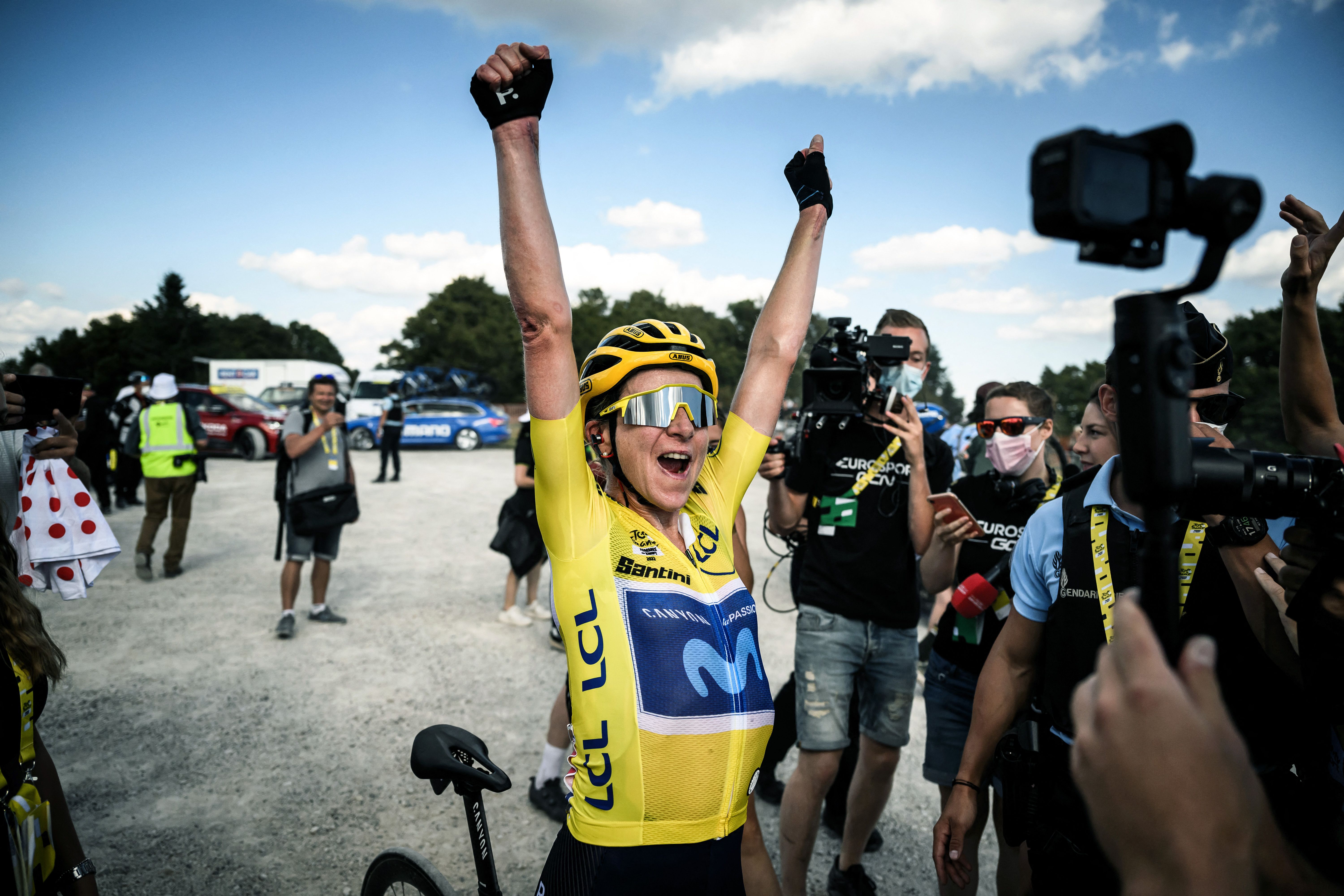 Don't miss these three stages of the 2023 Tour de France Femmes
Don't miss these three stages of the 2023 Tour de France FemmesThe eight-stage route promises high drama, no more so than on these three days
By Tom Davidson
-
 Cycling Weekly Club 10 time trial winner makes it through to Zwift Academy finals
Cycling Weekly Club 10 time trial winner makes it through to Zwift Academy finalsWill Lowden is the cousin of Uno-X pro Joss Lowden
By Vern Pitt
-
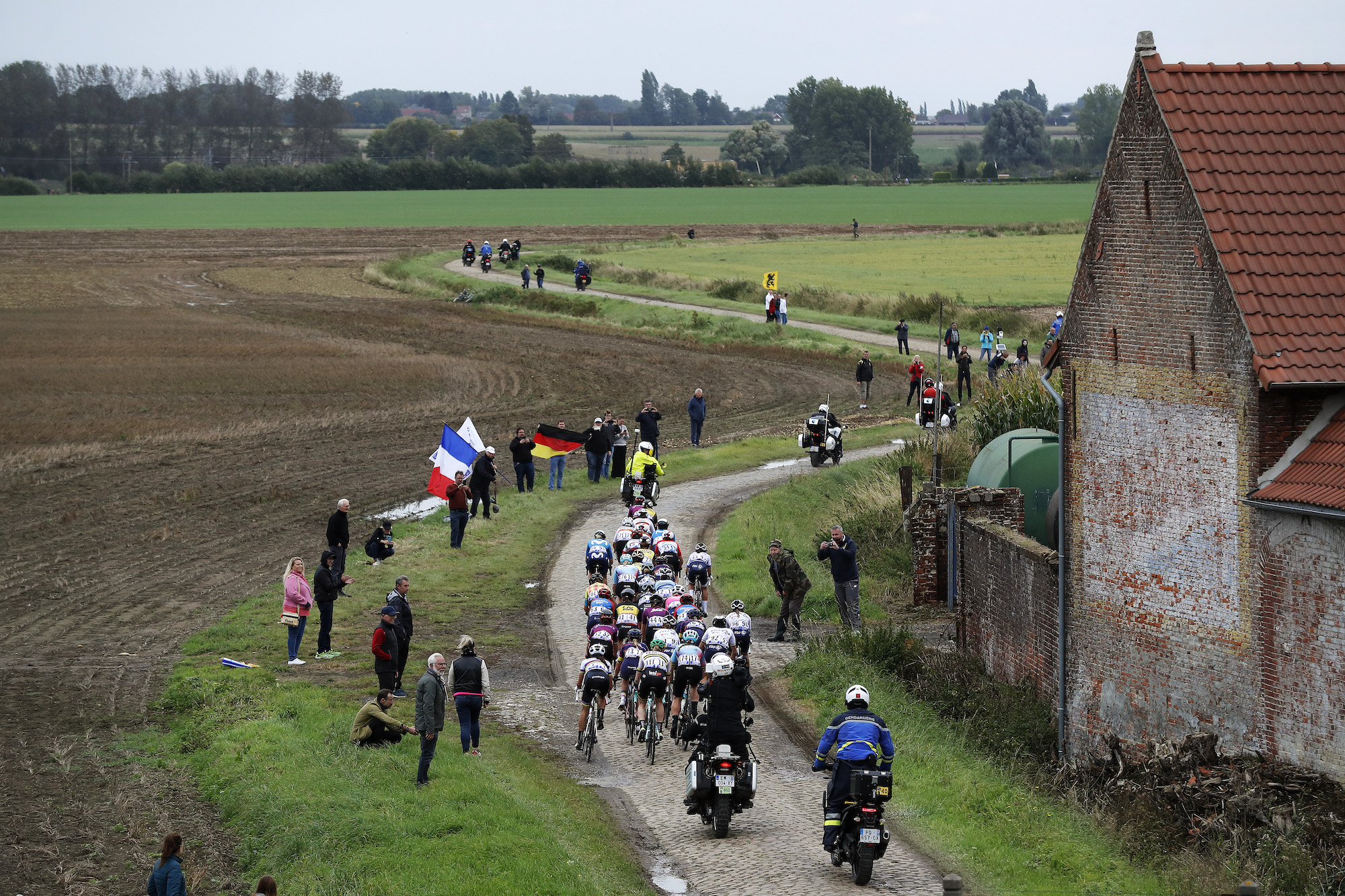 Zwift becomes title sponsor of Paris-Roubaix Femmes
Zwift becomes title sponsor of Paris-Roubaix FemmesOnline fitness platform builds on deal to sponsor inaugural Tour de France Femmes
By Adam Becket
-
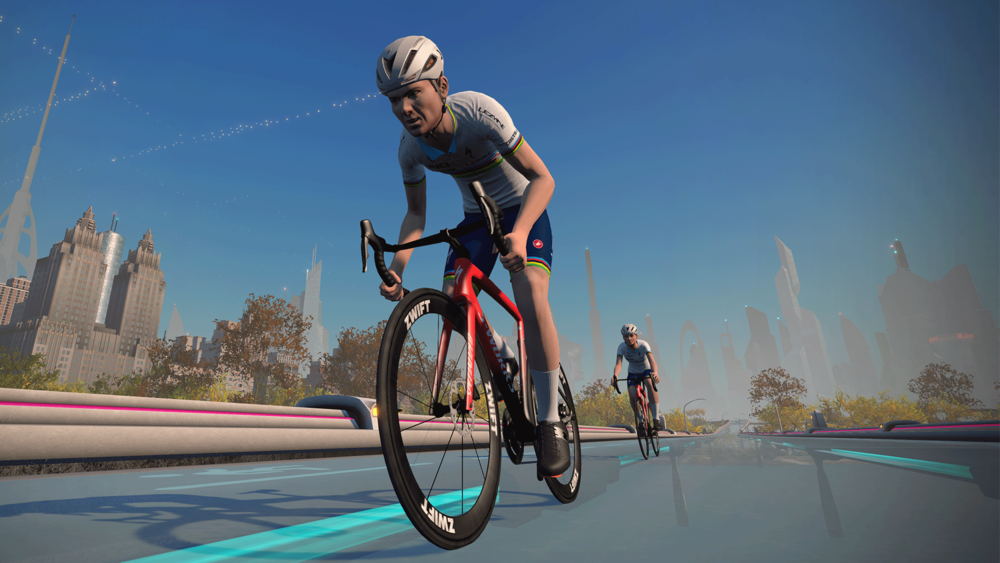 50 riders have been confirmed to be taking part in the UCI E-Sport World Championships 2022
50 riders have been confirmed to be taking part in the UCI E-Sport World Championships 2022The event is set to take place in Zwift's New York after riders have qualified from their continental groups
By Tim Bonville-Ginn
-
 Zwift racing one step closer to becoming Olympic sport with new Olympic Virtual Series
Zwift racing one step closer to becoming Olympic sport with new Olympic Virtual SeriesZwift racing is one step closer to becoming an official Olympic discipline, as it now forms part of a new Olympic Virtual Series competition.
By Alex Ballinger
-
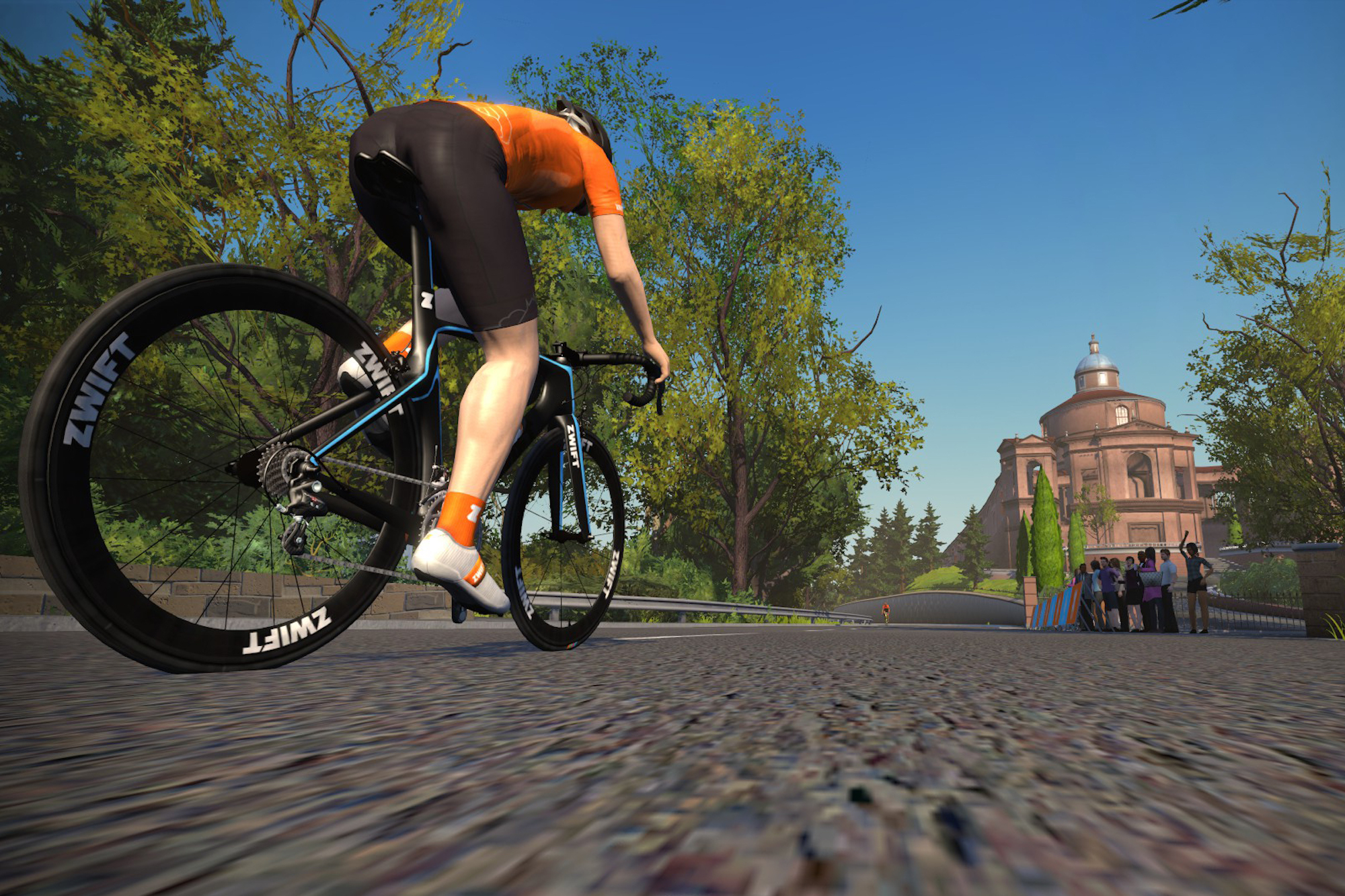 Zwift issues another ban for alleged data manipulation after investigating rider’s past results
Zwift issues another ban for alleged data manipulation after investigating rider’s past resultsZwift has issued another ban to a rider for alleged data manipulation, after investigating previous results following irregularities in his power data.
By Alex Ballinger
-
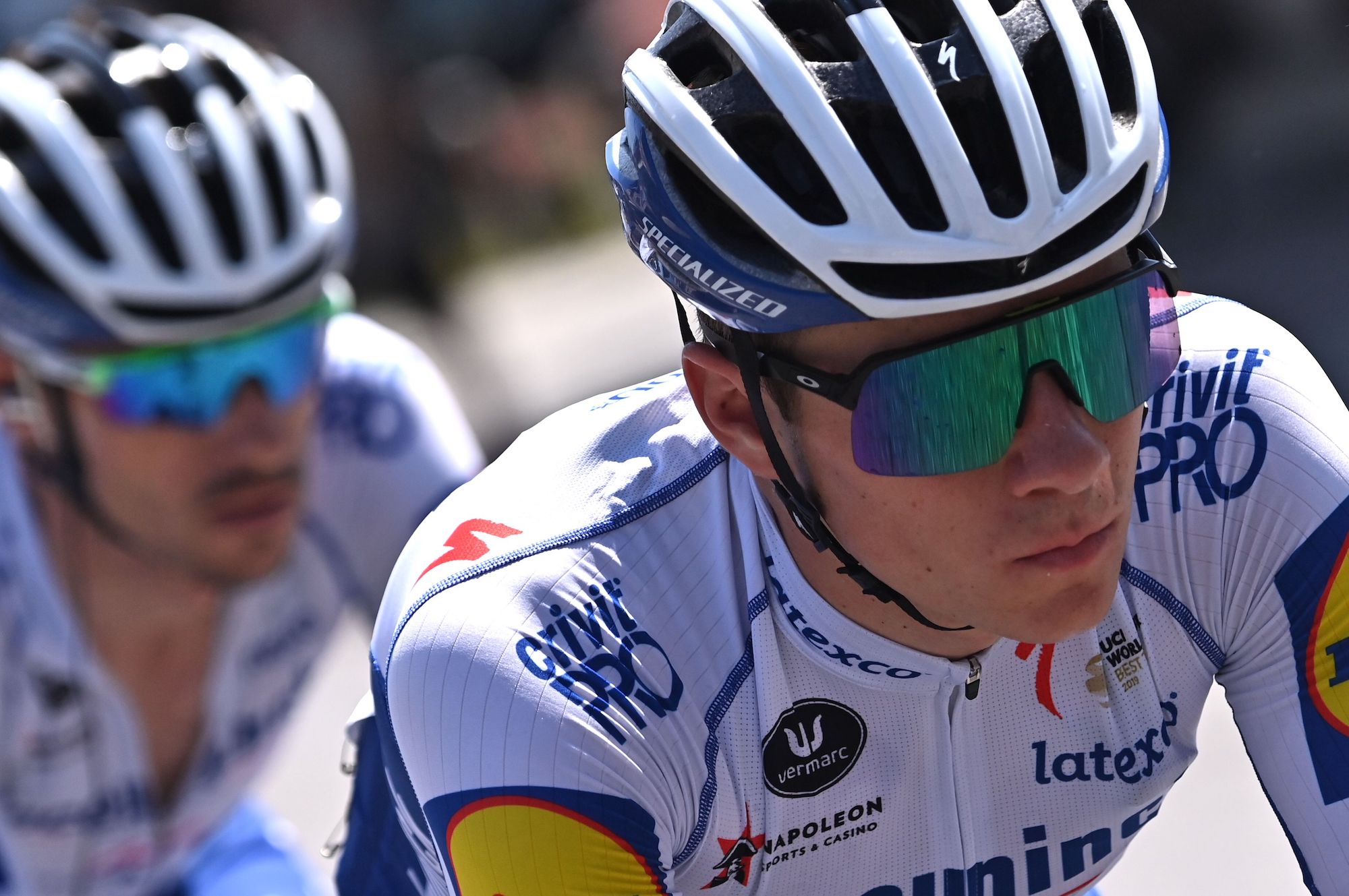 Remco Evenepoel posts first Zwift rides online as he returns to training
Remco Evenepoel posts first Zwift rides online as he returns to trainingThe 21-year-old Deceuninck - Quick-Step rider was recently given the all clear to return to riding his bike after a short break
By Tim Bonville-Ginn
-
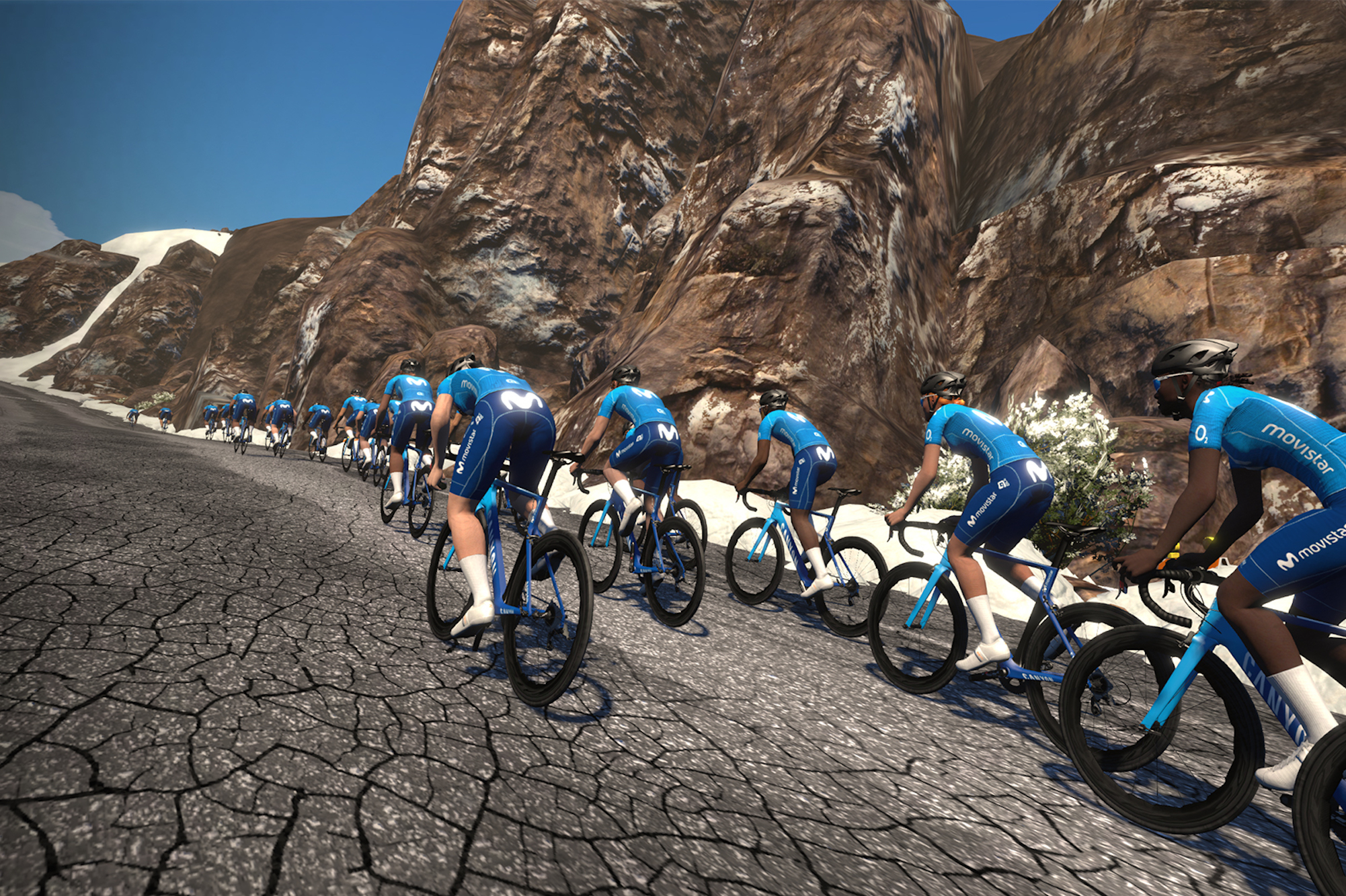 Here is your chance to join the Movistar Zwift racing team
Here is your chance to join the Movistar Zwift racing teamHave you ever fancied your chances at becoming a top tier Zwift racer?
By Alex Ballinger